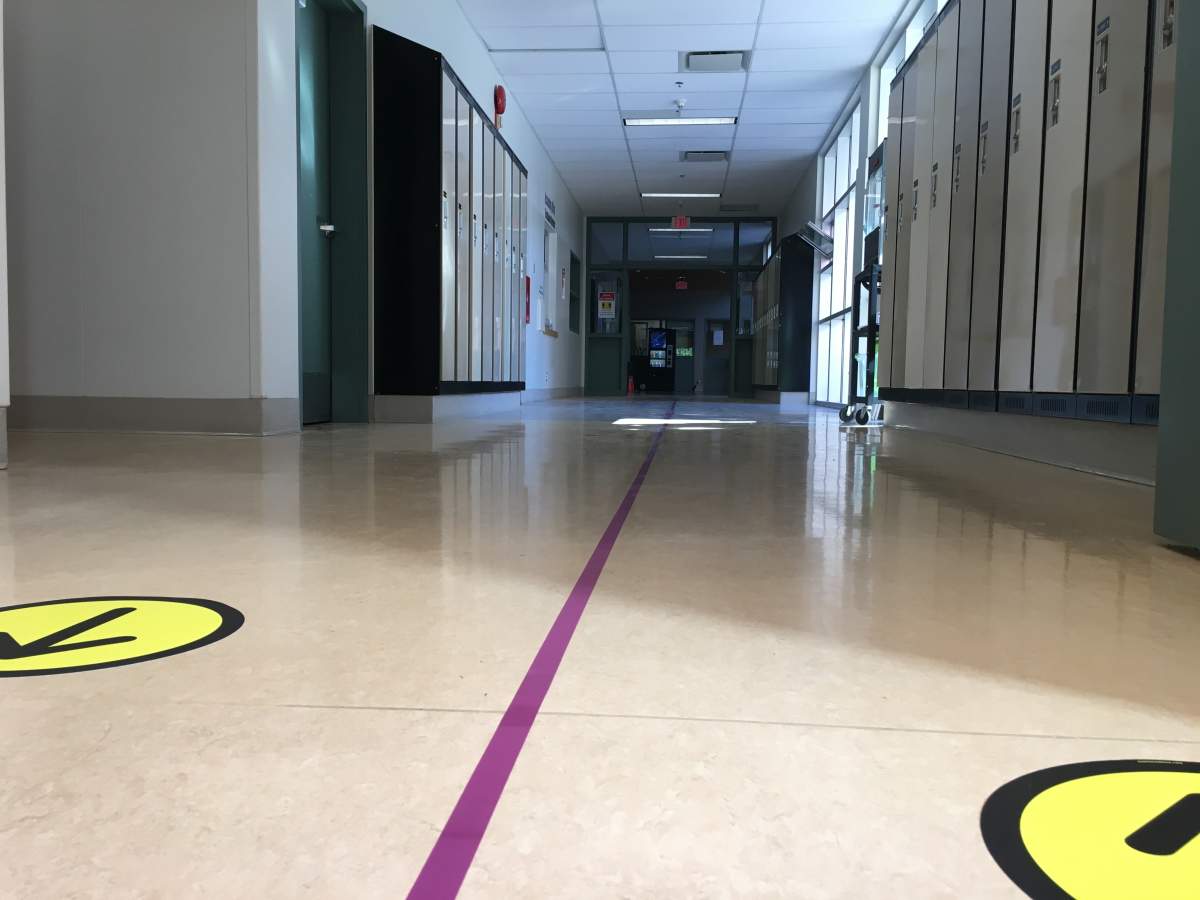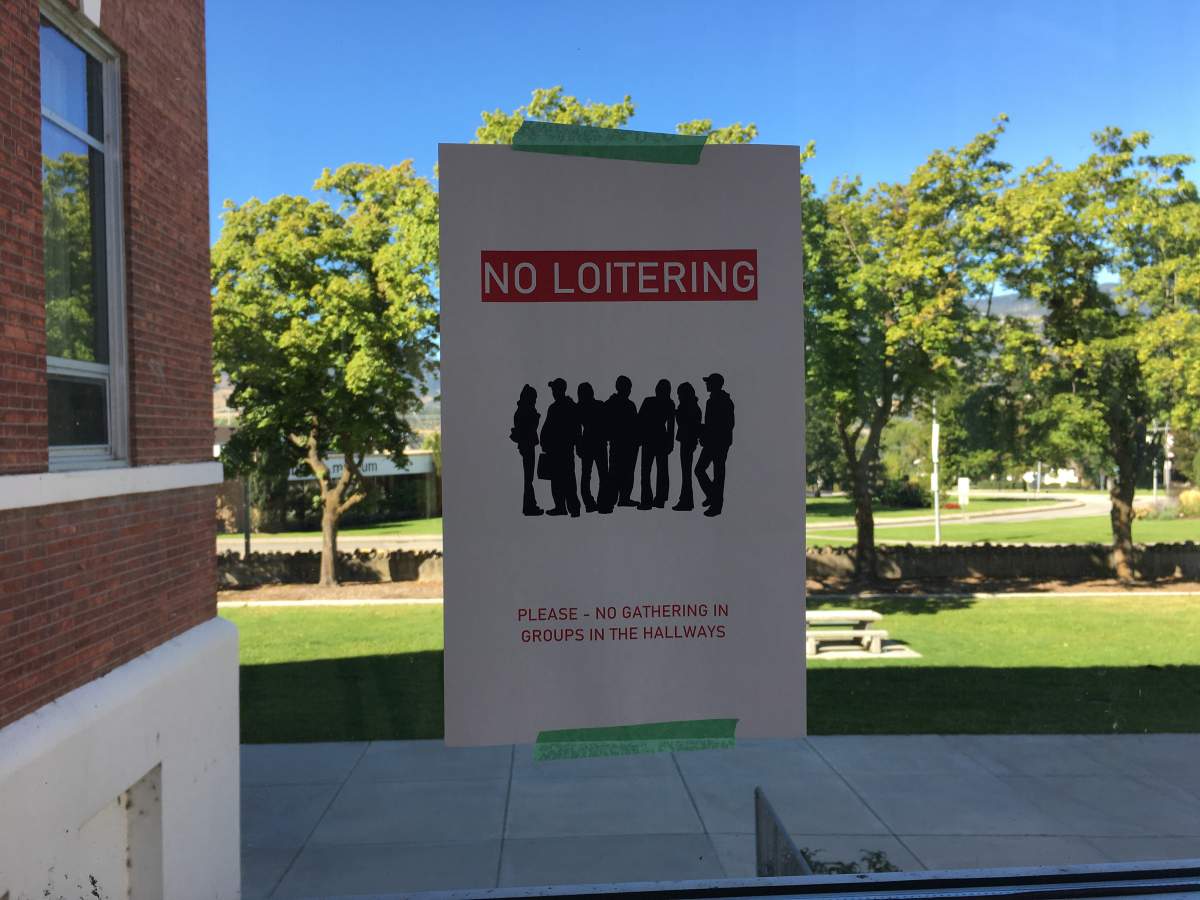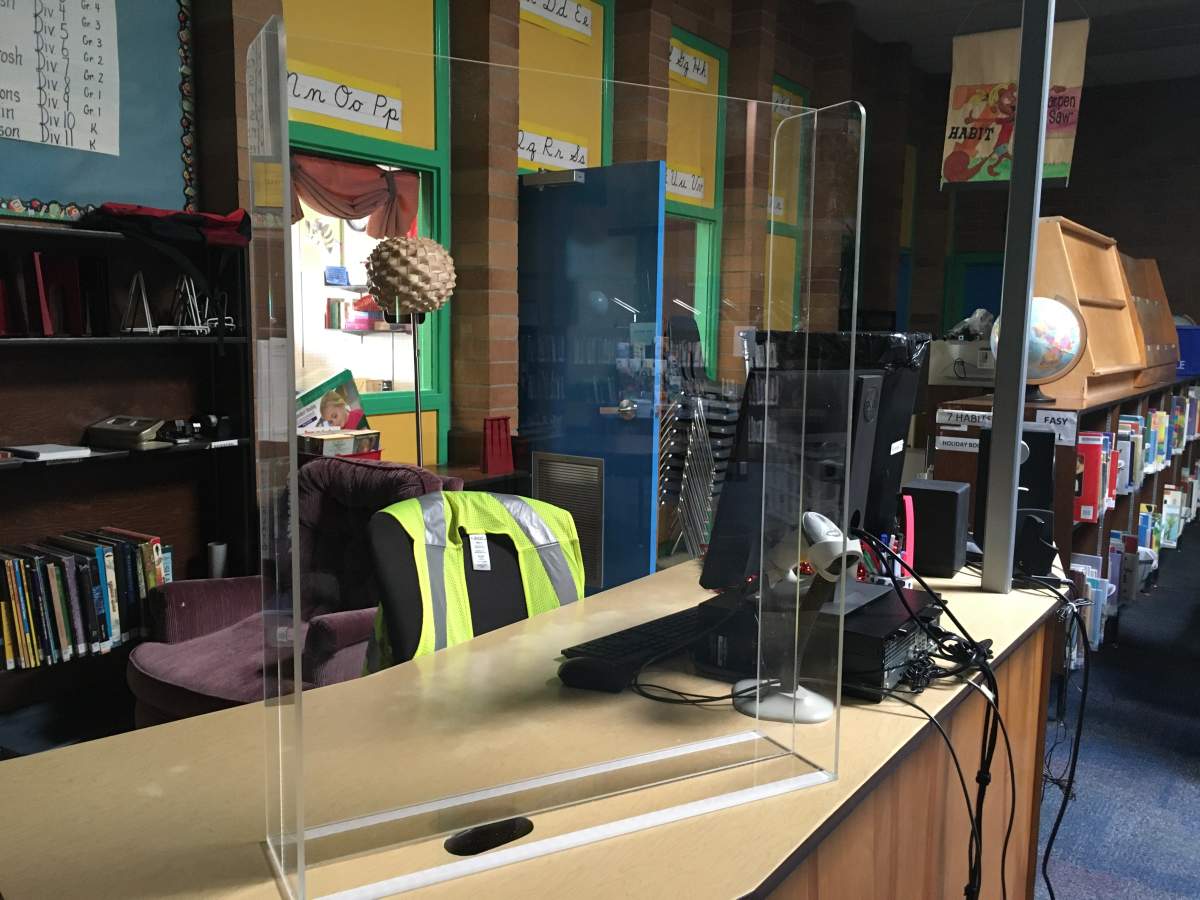What will high school look like in the COVID-19 era?

Penticton Secondary School, the city’s largest school, invited Global News cameras inside the building for the first time since the pandemic began to show off its new safety protocols.
Hand sanitizer and physical distancing signage is plastered everywhere upon entry.
Furniture and tables are removed from common areas like the cafeteria.
The school is considering a “skip the dishes”-style cafeteria model where students can order and pay for their lunch online and staff will deliver the food to a student’s classroom.
There will be directional hallway travel and lockers will remain locked up.
In class, students are assigned a desk and grade 10-12 students will attend school every morning and every second afternoon. Grade 9 students will attend in-class instruction full-time.
Masks are optional but face coverings will be required in common spaces when learning cohorts are mixing.
The Okanagan Skaha school district (SD 67) received $485,000 of the province’s $45.6- million distributed to B.C.’s 60 school districts to implement the health and safety measures.

Get breaking National news
“We have absolutely been using those dollars to help with our order of cloth masks for staff and students, to upgrade and enhance our cleaning protocols, we are looking at having additional touch point cleaners in schools,” said superintendent Todd Manuel.
Elementary schools will look similar, with more age-appropriate signage. Masks will not be required in elementary schools.
For parents still uncomfortable with sending their children back to in-class instruction, or have immuno-comprised family members in the household, the district is looking at a new option.
SD 67 is exploring the possibility of offering a temporary, flexible transition that would allow students to learn remotely and receive some learning support from the district while maintaining their placement at their home school.
Under this plan, parents may choose to have their child transition back to their school on one of the following dates:
- Elementary/Middle – October 19th, December 14th, January 25th
- Secondary – Nov. 16th (Start of Term 2), Feb. 1st (Start of Term 3)
Children whose families choose this option would remain enrolled in their home school for possible transition to in-person instruction this school year, Manuel said.

“We would be looking to provide them some support that parents would oversee around curriculum while they are at home, and then supporting them to get back into school as soon as they are able to,” he said.
The chair of the District Parent Advisory Council (DPAC), Katie Weitz, said parents remain anxious about the uncertainty of the school year ahead, and ever changing restart plans.
“I think the biggest concern is the health and safety of our kids,” she said.
“I think that has also added a layer of frustration to parents as well because it seems to change every week, but I think it is coming from higher up then just our district.”
Sean Stevenson with the Naramata PAC says his personal opinion is there’s mass confusion, uncertainty, fear and concern about the return to school.

“We all rely on the back-to-school as our relief of parenting, so to speak. With that in limbo I feel that so many are wanting to push the return, but at what expense,” he said in an email.
“We crave, desire and need the norm, but is it actually an attainable idea at this time? The leaders we look up to are struggling, as they too are only doing their best with the tools they have.”
Teachers and students transition back-to-school next week.
To read SD 67’s pandemic response plan, click here.
For answers to frequently asked questions at SD 67, click here.
- Trump doubles down after U.S. Supreme Court strikes down global tariffs
- Porter flight from Edmonton loses traction, slides off taxiway at Hamilton airport
- Coffee-hockey combo — or breakfast beers? — for bleary-eyed Olympic fans
- Are Canadian jobs any safer than before Trump’s tariffs were struck down?













Comments
Want to discuss? Please read our Commenting Policy first.